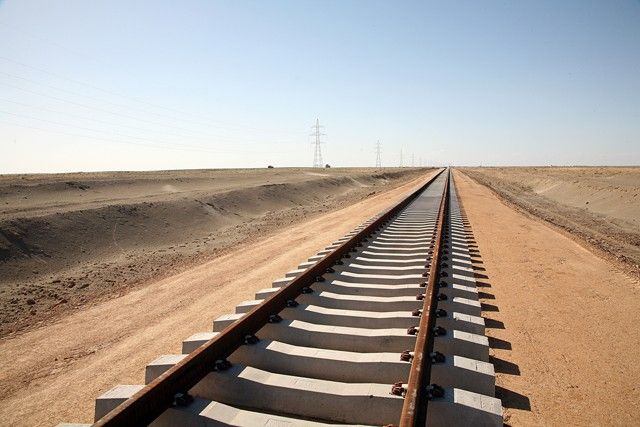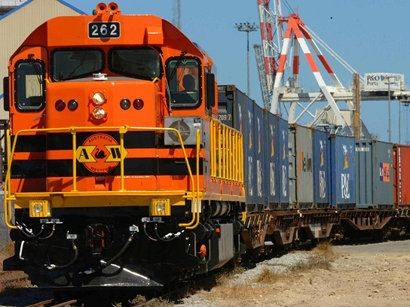Work started on construction of railway linking Afghanistan, Turkmenistan
KABUL (TCA) — The Afghan Acting Minister of Transportation, Yama Yari, on July 26 inaugurated work on the construction of Aqina-Andkhoi railway in Afghanistan’s Faryab province, Afghan broadcaster TOLOnews reported. Yari said the 30-kilometer railway will connect Aqina port with Andkhoi in Turkmenistan and that the project will cost $30 million. “Such projects will create jobs to residents of [Faryab] province,” he said. “I hope the project is completed on its time with the help of Faryab residents.” The MoU for construction of the railway was signed by Afghan and Turkmen officials in February. Construction of the railway in Afghanistan is carried out through the finance of the Turkmen side and with the use of Turkmen personnel and material resources (workers, engineers, and equipment including railway machines, cranes, and construction materials), the State News Agency of Turkmenistan reported. Turkmen specialists not only build the railroad but also develop infrastructure facilities. In the future, this railroad is planned to be extended to the border with Tajikistan with further entry to the states of the Asian Pacific region. This will give Afghanistan an opportunity to become an important link of international transport corridors running across Central Asia in the North–South and East–West directions. Today, Afghanistan seeks additional sales markets for its agricultural production, and the Aqina–Andkhoi railway line will open new opportunities for Afghan products to enter the world market.


